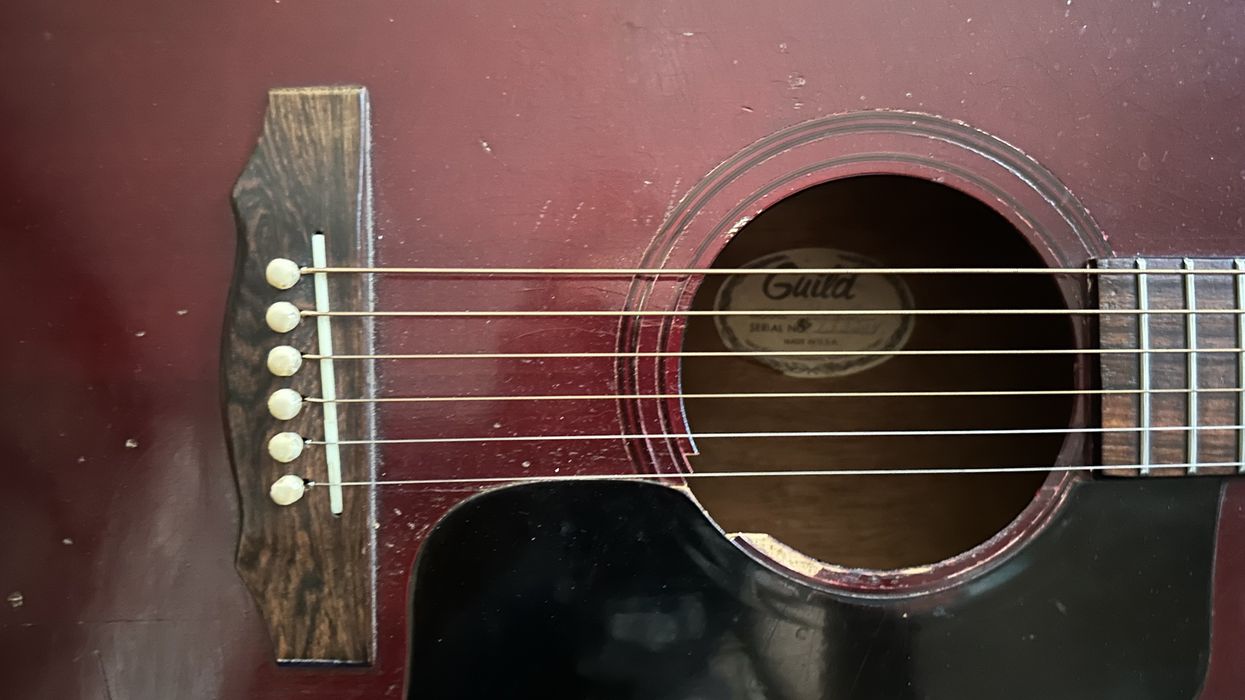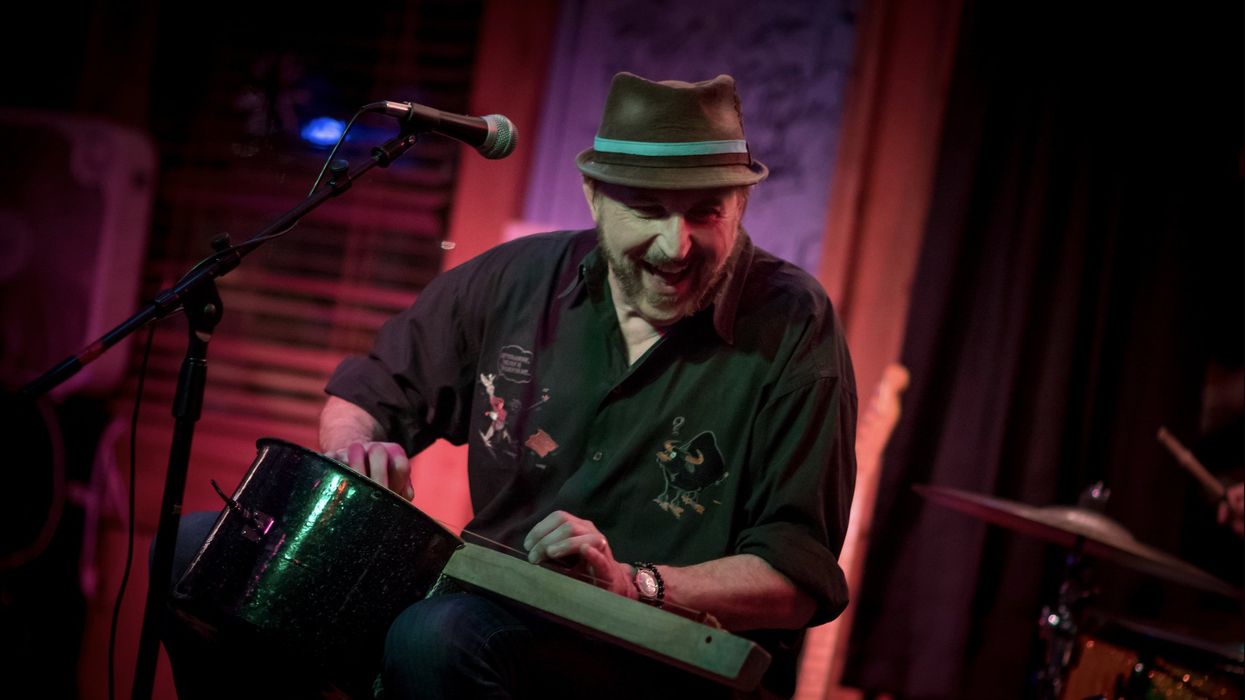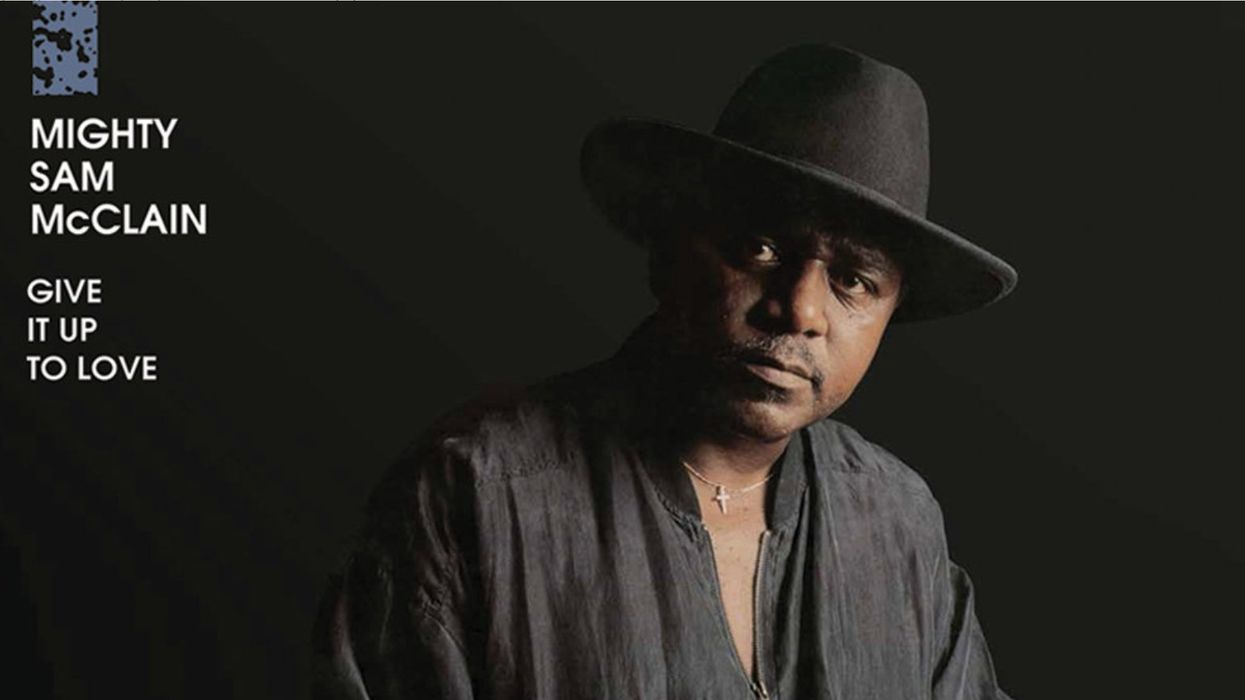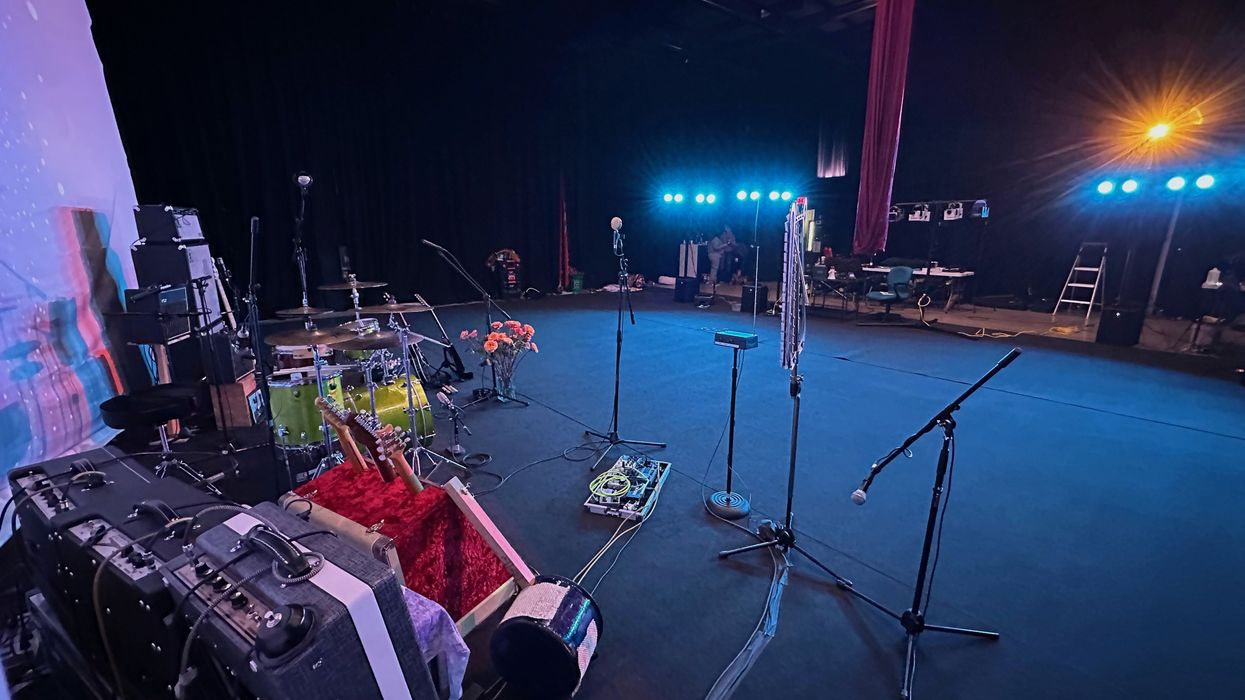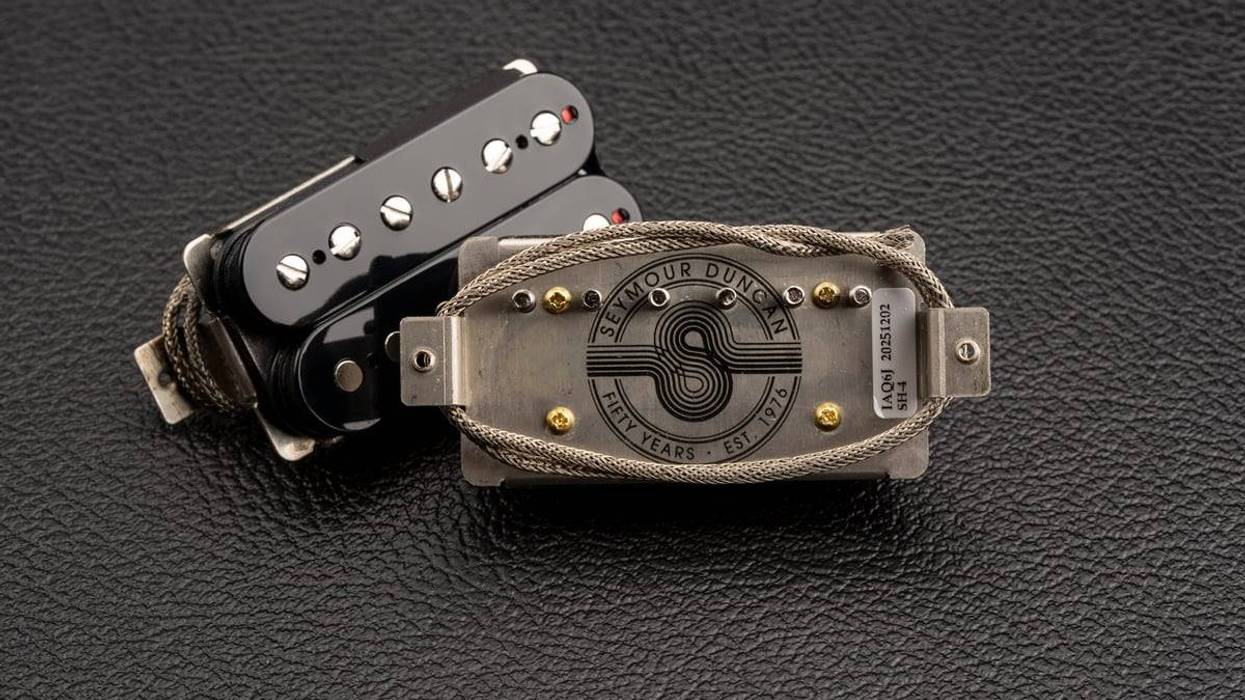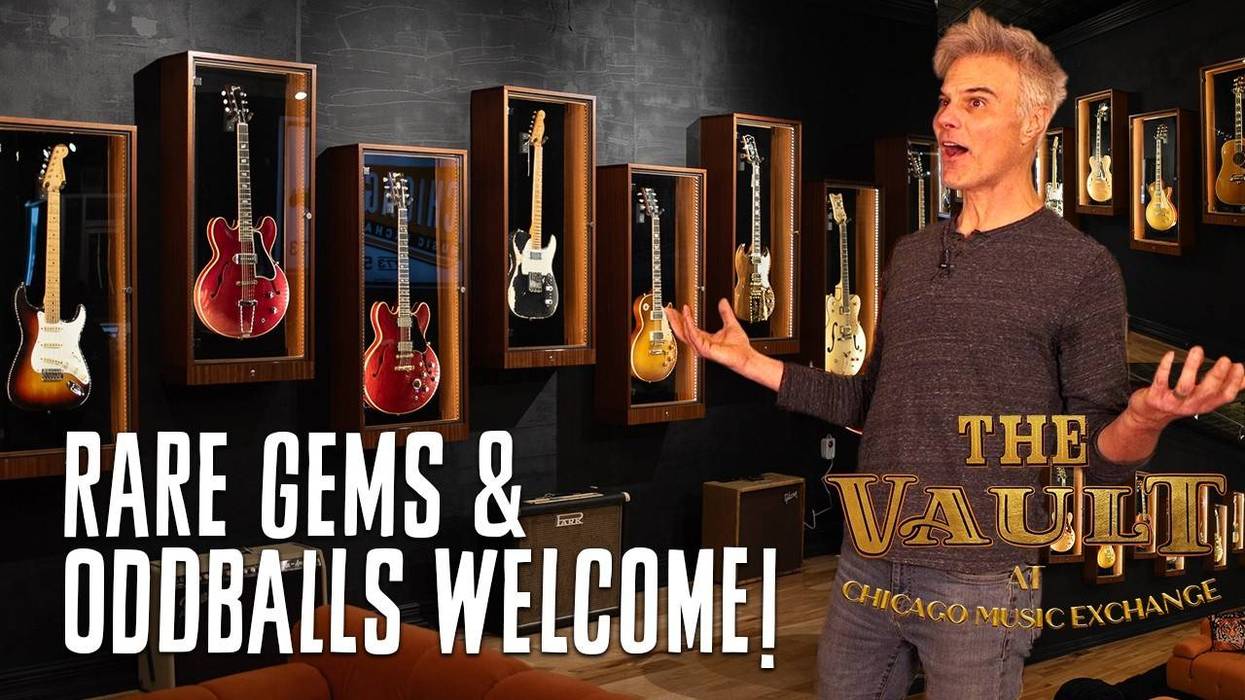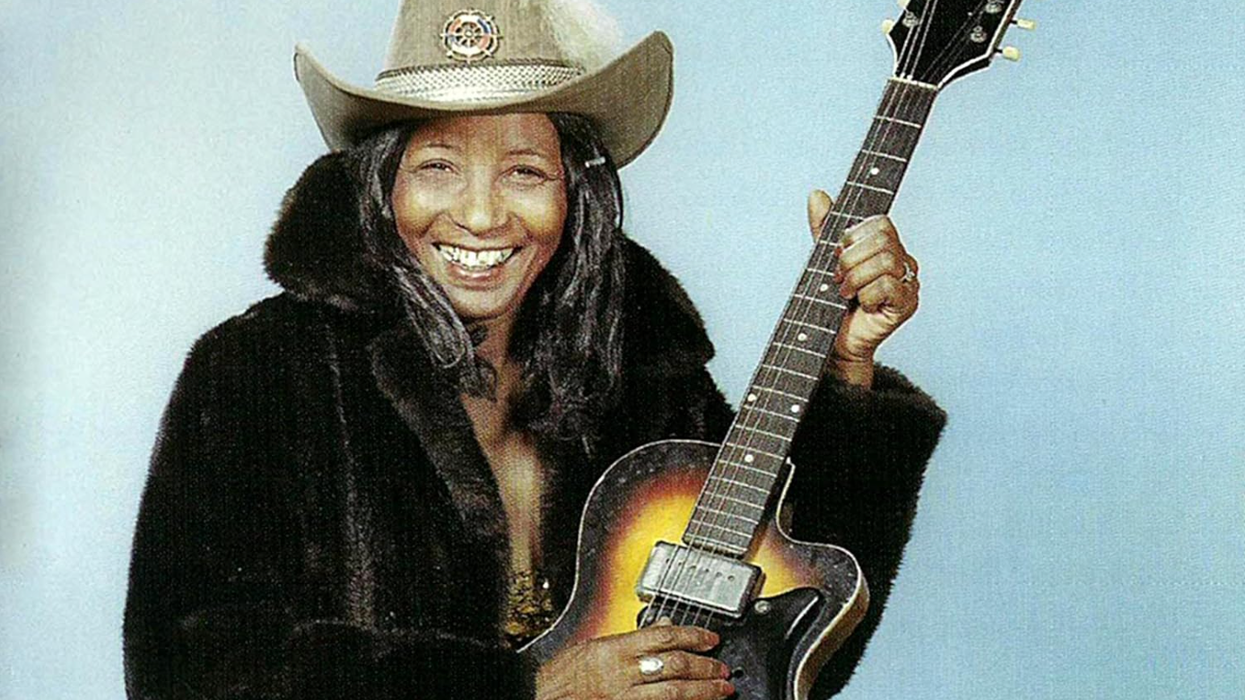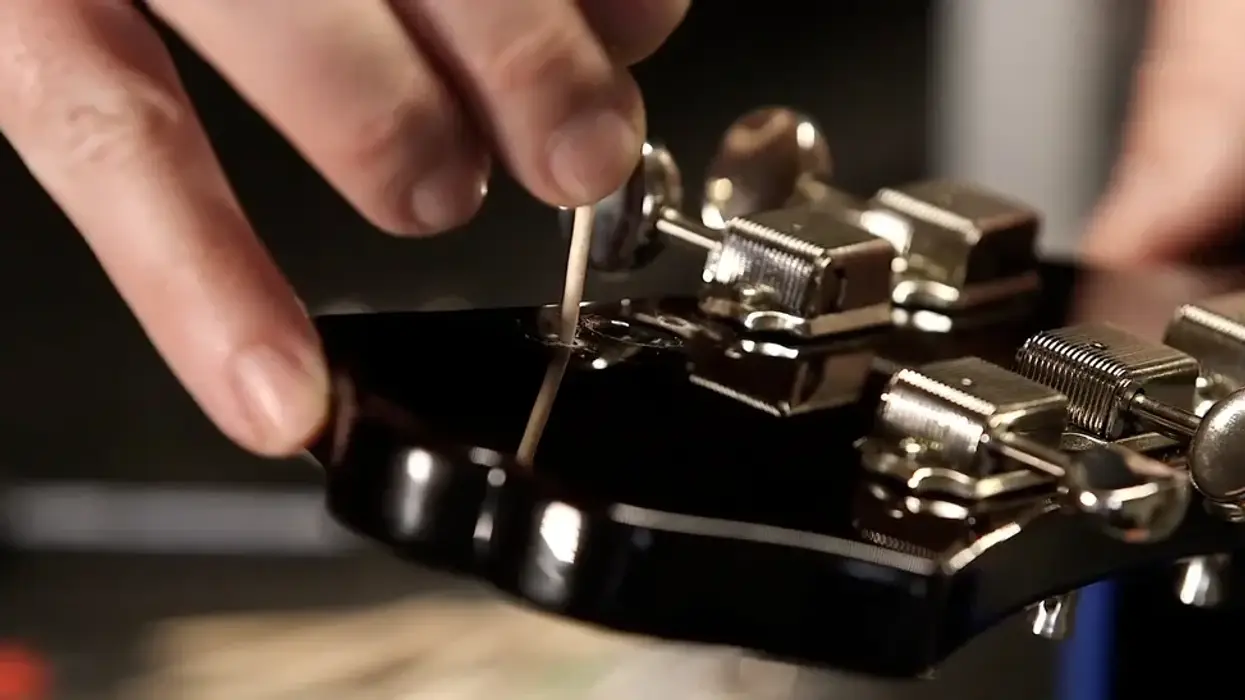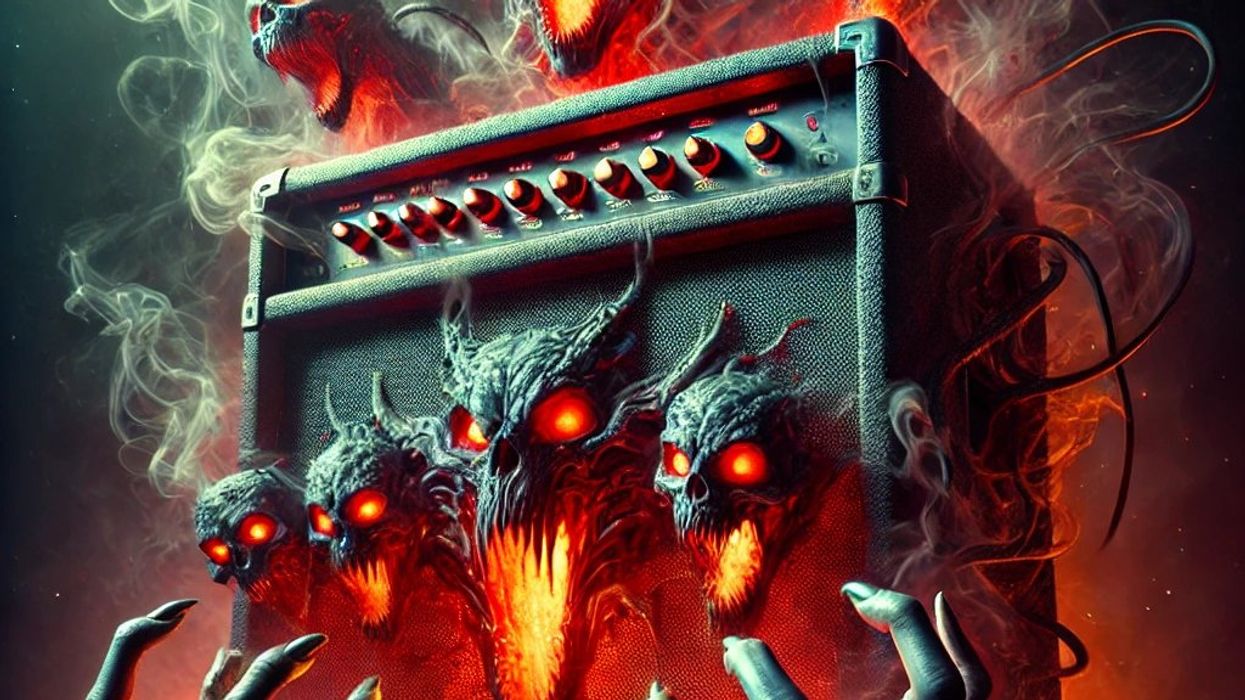I should probably name my acoustic guitar. After all, my dog Dolly has a name, and while she’s an old pup, I’ve known that guitar much longer. And like Dolly, that Guild D25C I got in the mid-’90s has given me many gifts.
I bought the guitar after borrowing it from a friend’s music store to play some acoustic radio gigs. I’d always felt awkward on acoustic before, but this ’80s Guild was an immediate joy to play, with a very electric-like, thin-profiled neck and a surprisingly even and ringing tone hampered by just a bit of boominess via its dreadnought body. When the radio gigs were over, I paid $400 for it.
I installed a pickup and then beat the hell out of the guitar, playing some acoustic shows, but mostly letting the instrument’s comfort and playability take me down a rabbit hole from which I’ve never fully emerged. You see, at the same time as I got my D25C, I began chasing the blues of North Mississippi Hill Country. And after logging many trips to be at the feet of R.L. Burnside, Jessie Mae Hemphill, Junior Kimbrough, and others, the pull was irresistible. Burnside’s style was especially magnetic, and I found myself drawn to fingerpicking, slide, and open tunings.
The summer shortly after I got the guitar, I began spending a few days a week at the beach with my Guild, slowly developing my own Burnside-inspired idiosyncratic fingerstyle approach—really delving into slide and playing in open D and G. It was slow going, and the Guild received no mercy. Whether I was on the fretboard or in the water, the guitar spent six hours or more of every beach day unprotected from the baking sun and hot sand.
We all encounter instruments that play a special role in our lives. They inspire us to become better songwriters and players, and maybe even better people.
I had gigs and a day job, so my conversion from rock plectrist to blues yeti was slow. It took three summers of beachy Guild abuse until I felt like I could play the style in public. But along the way I did learn some of the intricacies of primal slide and how to control dynamics and be fleet and nuanced with my fingers. I emerged a different player, and the Guild became a different guitar. After all that time in the sun, it felt and sounded lighter and airier, with a brighter, more balanced palette. Despite all the warnings about exposing guitars to punishing elements, it had gotten better, and the instrument continues to reward me with its comfort and tone.
My Guild taught me that a guitar doesn’t have to be a special instrument to be a special instrument. It’s a humble model that many players I know dismiss in favor of pricier or more boutique 6-strings, but because of when it arrived in my life, it became the keys to the kingdom of my playing style—a kind of blind cave fish approach built on archaic blues and my instinct for psychedelia and improvisation.
We probably all have an instrument like this—an unfancy guitar that nonetheless helped us grow and become ourselves. For me, the benefit of learning a new approach to the instrument on acoustic and then transferring it to the faster, more sonically flexible world of electric guitar was immensely gratifying. But I still love that Guild for itself, and it still yields songs, compositional ideas, and an endless supply of good vibes. And when I’m cranking a Les Paul through a pair of amps in stereo, I can feel the raw DNA of the Guild in what I’m playing.
Instruments that play a special role in our lives inspire us to become better songwriters and players. Maybe even better people, because in formulating a personal approach as a guitarist, we establish a kind of equilibrium that gives us confidence to play and perform, and confidence in our own place in the world.
Sure, guitars are wood and wires—mostly—but when we work to bond with them and play them for all they’re worth, they can be as rewarding, faithful, and inspiring as a good dog. Or a good friend. They take us on journeys within ourselves and in the real world. They create opportunities for learning, adventure, and joy. And who doesn’t want more joy?
Hopefully you have at least one guitar you love as much as I love my battered Guild D25C. And if you don’t, maybe you’ll adopt that instrument soon. Because every guitar can be a door to the cosmos. All you need to do is open it and, to paraphrase Timothy Leary, tune up and turn on!


